
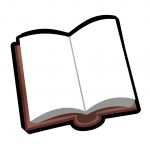
Chapter 2 from the book, The Nectar of Govinda-līlā, 4th edition (Second Printing), by Śrīla Bhaktivedānta Nārāyaṇa Mahārāja
Chapter Two
mad-bhakto
Become My Devotee
In the last chapter we began explaining the best and sarva-guhyatama, most secret, verse of Bhagavad-gītā. Giving examples, we explained what man-manā bhava is. Just as Kṛṣṇa gave this instruction to Arjuna on a 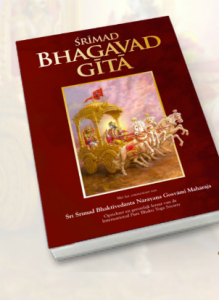 battlefield, we are also in the midst of a battle. We are at war with the tendencies of the mind, which is restless by nature. At that time in Kurukṣetra, there was a war going on between the Pāṇḍavas and Kauravas. Just as this man-manā bhava was difficult for Arjuna then, it is also difficult for us now.
battlefield, we are also in the midst of a battle. We are at war with the tendencies of the mind, which is restless by nature. At that time in Kurukṣetra, there was a war going on between the Pāṇḍavas and Kauravas. Just as this man-manā bhava was difficult for Arjuna then, it is also difficult for us now.
The Pāṇḍavas’ army consisted of seven military phalanxes (akṣauhinīs), and the Kauravas’ army consisted of eleven. Opposite us also is an army of eleven akṣauhinīs, and we are alone. Kṛṣṇa was the driver of Arjuna’s chariot, but our driver is bad intelligence, deformed intelligence. Arjuna had a chariot given to him by the demigod Agni that could not be burnt or destroyed, but what kind of chariot do we have? Only the material body, which is subject to disease and death. Arjuna had the Gāṇḍīva bow for fighting, but what do we have? We have no help; such is our position of weakness. Who was sitting on the flag of his chariot? Hanumān. Arjuna had all kinds of help, but at once his mind became disturbed and he said, “My Lord, I am unable to do this man-manā bhava.”
The body is our chariot, the soul is its passenger and the mind is its charioteer. What is the nature of the mind? Restless; it gives us no help at all. By its direction we will fall down or stray from the path.
At first, with hands folded together, Arjuna said:
śiṣyas te ’haṁ śādhi māṁ tvāṁ prapannam
Bhagavad-gītā (2.7)
In all ways I am now surrendered unto You. As You instruct me, I will do.
He heard all of Kṛṣṇa’s instructions, and then said, “I am unable to do this man-manā bhava. How will I absorb my mind in this way? It is not possible. Opposite us are Bhīṣma, Droṇa, Karṇa, Duryodhana and Duḥśāsana. So many great mahārathīs are assembled together to fight against us.”
Opposite us also are six mahārathīs. What are they? The urges of speech, the tongue, the stomach, the genitals, the uncontrolled mind and anger. We cannot conquer even one of these mahārathīs. Even such exalted personalities as Viśvāmitra and Nārada were affected by one of these mahārathīs, the sexual urge. In the Rāmāyaṇa it is described that once Nārada desired to marry a princess, but he was defeated at a marriage ceremony (svayaṁvara) when Viṣṇu gave him the face of a monkey. Beyond these mahārathīs, there are so many kinds of anartha, impediment, we must contend with. Therefore Kṛṣṇa said, “Mad-bhakto – become My devotee.”
Arjuna considered, and said, “Saying one will become a devotee is easy, but to actually do it is very difficult.”
To become a devotee, one thing is especially necessary:
anyābhilāṣitā-śūnyaṁ
jñāna-karmādy-anāvṛtam
ānukūlyena kṛṣṇānu-
śīlanaṁ bhaktir uttamā
Bhakti-rasāmṛta-sindhu (1.1.11)
One should not have any type of material desire. For attaining bhakti, for attaining the service of Śrī Kṛṣṇa or a real devotee, there cannot be a scent of any other desire in the heart. What to speak of the desire itself, there cannot be even a scent of it. There are to be no tendencies of jñāna, the cultivation of knowledge directed towards impersonal liberation, or karma, fruitive activity.
Without karma – meaning here activity in the general sense – no man can live. He must at least do some karma. Even at the time of sleeping we are doing some karma. What are we doing? Breathing, changing position and dreaming: this is all karma. So it is unavoidable – without doing some form of karma we cannot live for even one moment. Anyone who says that he is living entirely without karma is a pretender. We must do some karma. We must eat, and to save ourselves from the cold we must wear clothing. But how will we escape from karma covering our bhakti? This action will not cover bhakti: when eating, don’t forget Bhagavān. Eat for Bhagavān, for His service. In our present condition we also cannot live without jñāna. Knowledge is also necessary. Without knowledge we will not even know where to place our feet while walking and we will fall.
But see how these things can cover bhakti. In the name of helping others, Bhārata Mahārāja made a mistake  and fell down from spiritual life. He had been practising bhakti and attained a very high stage, up to bhāva. He saved the baby deer from the mouth of the tiger and from drowning in the stream, and afterwards he maintained it by feeding it milk, thinking he was benefiting another living entity. But because of this activity he had to take another three births.
and fell down from spiritual life. He had been practising bhakti and attained a very high stage, up to bhāva. He saved the baby deer from the mouth of the tiger and from drowning in the stream, and afterwards he maintained it by feeding it milk, thinking he was benefiting another living entity. But because of this activity he had to take another three births.
Therefore although jñāna and karma will remain, they must be kept in a position of servitude to bhakti. Otherwise our bhakti will become covered. So how will we engage our jñāna and karma? By going to the market and bringing good quality fruits and vegetables for the service of the deities. The deities will accept the offerings and give prasāda to everyone. By this, bhakti will not be covered; instead it will increase.
On the other hand, we may bring all first-class ingredients like the best carrots, pure cow’s ghee and coconut,  make very beautiful halavā, and then add silver topping. But if it is for our own enjoyment, then everything is spoiled. This action will cover our bhakti, so we must be careful of this.
make very beautiful halavā, and then add silver topping. But if it is for our own enjoyment, then everything is spoiled. This action will cover our bhakti, so we must be careful of this.
If we have made this preparation thinking, “I have made this, I brought the ingredients, I collected the necessary funds and I will enjoy it,” and afterwards offer it to Bhagavān, then that is somewhat all right, but it is not completely correct. Do not offer it only after preparing it, but rather from the very beginning it should be offered to Bhagavān.
yajñārthāt karmaṇo ‘nyatra
Bhagavad-gītā (3.9)
Your action should be a sacrifice for Bhagavān. This is the instruction of Bhagavad-gītā (9.27) – whatever you eat or drink should be for sacrifice.
yat karoṣi yad aśnāsi
yaj juhoṣi dadāsi yat
yat tapasyasi kaunteya
tat kuruṣva mad-arpaṇam
Whatever you eat, if you prepare food, if you perform a sacrifice, if you are keeping a garden – all should be for offering to the deity. In general the spiritually inclined people of this world are going on like this. But Śrī Caitanya Mahāprabhu and the Gauḍīya ācāryas have taught, “Don’t do things in this way! Beware! You’ll be trapped!” Rather we should first offer our very selves to the deity: “I am Yours.” Then whatever we eat or do will automatically be for Bhagavān.
śravaṇaṁ kīrtanaṁ viṣṇoḥ
smaraṇaṁ pāda-sevanam
arcanaṁ vandanaṁ dāsyaṁ
sakhyam ātma-nivedanam
iti puṁsārpitā viṣṇau
bhaktiś cen nava-lakṣaṇā
kriyeta bhagavaty addhā
tan manye ‘dhītam uttamam
Śrīmad-Bhāgavatam (7.5.23–4)
Hearing (śravaṇam) and chanting (kīrtanam) about Kṛṣṇa, remembering Him (viṣṇu-smaraṇam), serving His feet (pāda-sevanam), worshipping Him (arcanam), praying to Him (vandanam), becoming His servant (dāsyam), becoming His dear friend (sakhyam) and fully surrendering to Him (ātma-nivedanam): this is ninefold bhakti. Performing these nine types of devotion is the topmost knowledge.
Even if all of these are performed, but the results are offered to Bhagavān afterwards, then it is devotion mixed with personal desire (karma-miśra-bhakti), not pure bhakti. The people of this world generally don’t know this. They just think that they should offer things to Him, but pure devotees understand the shortcomings in this. Therefore we should first offer our very selves, not just the results of our activities; those who follow the path of karma offer that.
It is like a small boy who is eating while sitting on the lap of his father. When the boy sees something, he just puts it into his mouth, and he puts food into the mouth of his father also, and his father is not offended. The father is pleased. Why? The boy is fully dependent on him. He may even punish the boy, but the boy would never leave him. In order to develop a relationship like this with Bhagavān, we first offer everything to our guru, because in our present condition he is to be seen as Bhagavān. When we develop a direct relationship with Bhagavān, then there will be no necessity of formal offerings. The gopīs are eating and decorating themselves, but they do not make any formal offerings or perform pūjā to Kṛṣṇa. They are using many good-quality things in the course of dressing and decorating themselves and applying their ornaments – but who is it all for? Whatever they do is for the pleasure of Kṛṣṇa. As soon as something comes to them, it is automatically for Kṛṣṇa. In this way we should do everything exclusively for the pleasure of Kṛṣṇa.
Such bhakti is difficult to attain, and it requires that we have some merit from our previous lives. And if in this birth, by the mercy of Bhagavān and the Vaiṣṇavas, we have been graced with the company of pure Vaiṣṇavas, then pure bhakti can come. The story of Bilvamaṅgala Ṭhākura nicely illustrates this point. Although he had some merit from his previous lives, some specific desires for enjoyment still remained in his heart. He kept company with the prostitute Cintāmaṇi, who after some time became exclusively interested in Kṛṣṇa and  therefore rejected Bilvamaṅgala. After this he crossed the river to her palace using a dead body for flotation, and used a snake to climb up to her window. She rebuked him, and after that he became renounced. Now having a great desire to meet Kṛṣṇa, he left his home and began heading towards Vṛndāvana. Perhaps five days later he stopped at a well to get some water where he saw a young girl, who gave him some water to drink. But he forgot about drinking the water and began gazing at her. He followed her home, and there a brāhmaṇa came to the door thinking, “Why has this mahātmā come?”
therefore rejected Bilvamaṅgala. After this he crossed the river to her palace using a dead body for flotation, and used a snake to climb up to her window. She rebuked him, and after that he became renounced. Now having a great desire to meet Kṛṣṇa, he left his home and began heading towards Vṛndāvana. Perhaps five days later he stopped at a well to get some water where he saw a young girl, who gave him some water to drink. But he forgot about drinking the water and began gazing at her. He followed her home, and there a brāhmaṇa came to the door thinking, “Why has this mahātmā come?”
Bilvamaṅgala asked, “Who is the girl that lives here?”
The brāhmaṇa replied, “She is my wife.”
Bilvamaṅgala said, “Call her. I want to speak with her a little.”
So he called her, and when she came, Bilvamaṅgala asked her,
“Please give me both of your hairpins.”
The brāhmaṇa and his wife thought, “He is a travelling mendicant, so perhaps he has a thorn or splinter in his skin that he wants to remove.”
So they gave him the hairpins. Bilvamaṅgala did have a thorn he wanted to remove, but that thorn was in his  heart, and he was unable to reach it. Therefore he took the hairpins and plucked out his eyes.
heart, and he was unable to reach it. Therefore he took the hairpins and plucked out his eyes.
There is a saying in Hindi that means, “If there is no bamboo, there will be no flute.” These eyes can be the root cause of our attachment to this world insofar as the form of a woman attracts a man, and the form of a man attracts a woman, and for each other they are the personification of māyā, illusion. Therefore Srīmad-Bhāgavatam and other scriptures have warned us to be very careful about this.
Now blind, Bilvamaṅgala went on his way. He was in such a mood of deep separation from Kṛṣṇa that now all of his senses were centred on Bhagavān. On the way there were many obstacles such as mud-holes and streams,  but he was resolved in his determination and deeply meditated on Kṛṣṇa as he was going towards Vṛndāvana. Then one day a young boy came to him and said in a sweet voice, “Bābā, where are you going?”
but he was resolved in his determination and deeply meditated on Kṛṣṇa as he was going towards Vṛndāvana. Then one day a young boy came to him and said in a sweet voice, “Bābā, where are you going?”
Being pleased, Bilvamaṅgala replied, “My son, I am going to Vṛndāvana. Where are You going?”
“I am also going to Vṛndāvana – I make My living there.”
“Vṛndāvana? Then come with me, and hold my walking stick.”
They went off together, and wandering and wandering, they arrived in Vṛndāvana. On the way what happened? Inside his heart, Bilvamaṅgala experienced so many realisations about Kṛṣṇa that were just like nectar. This is called sādhana. Bilvamaṅgala was a sādhaka. What we described in the previous chapter concerning the gopīs was the stage of perfection. As the Gaṅgā emerges from the Himālayas and flows naturally towards the sea without any special effort, in the same way the tendency of the gopīs’ hearts flows in the direction of Kṛṣṇa’s feet without ever stopping. This is the level of perfection, but here we are discussing sādhana. Bhakti-rasāmṛta-sindhu and other scriptures declare that Bilvamaṅgala was a sādhaka, but then what are we? We are not even sādhakas. Being only on the first step of vaidhī-bhakti, will we be arrogant enough to call ourselves real sādhakas?
Śravaṇam, kīrtanam, viṣṇu-smaraṇam, pāda-sevanam, arcanam, vandanam, dāsyam, sakhyam and ātma-nivedanam – there are two kinds of these nine devotional activities. One is vaidhī-bhakti and the other is rāgānuga-bhakti. Devotion works in these two ways, and we must follow them both. It is not that we will leave vaidhī- bhakti, but internally our feelings will change. Our external forms will remain the same, but internally we will have niṣṭhā, firm faith. Those that have this can be called real sādhakas. How do they perform sādhana? With tears flowing from their eyes, they perceive their hearts as being in the form of a flower and they offer that flower to the feet of Kṛṣṇa. But without being asked, automatically Kṛṣṇa will come and take that flower.
Just as in the case of Bilvamaṅgala – he was a sādhaka, and in the end what happened? Kṛṣṇa Himself came and led him by the hand to Vṛndāvana. He was engaged in such sādhana that day and night he was in deep meditation, but not just passively. He was doing śravaṇam, kīrtanam, smaraṇam, and pāda-sevanam all in the mood of a sakhī. From the beginning he did it with the sentiments of a sakhī. We should also execute that kind of sādhana wherein there is not even a trace of fruitive activity or impersonal knowledge. Then gradually one’s own internal identity (svarūpa) will blossom, and in that form we can offer direct service to Kṛṣṇa. A rāgānuga devotee should practise sādhana like this.
There is also the example of Raghunātha dāsa Gosvāmī.
Externally he appeared as a sādhaka, but internally he was a perfected soul. Internally he had fully realised his eternal svarūpa, but how did he behave externally?
saṅkhyā-pūrvaka-nāma-gāna-natibhiḥ kālāvasānī-kṛtau
nidrāhāra-vihārakādi-vijitau cātyanta-dīnau ca yau
rādhā-kṛṣṇa-guṇa-smṛter madhurimānandena sammohitau
vande rūpa-sanātanau raghu-yugau śrī-jīva-gopālakau
Śrī Ṣaḍ-gosvāmyaṣṭakam (6)
He would chant the holy name in a regulated manner, and would daily only drink water after completing one lākha of harināma. Daily he would offer at least one thousand full prostrated obeisances to Vaiṣṇavas, to special places of Kṛṣṇa’s pastimes and to the holy dhāma. He was very meek and humble, and day and night he was absorbed in thinking of Kṛṣṇa.
In his childhood he had received initiation from his family guru Yadunandana Ācārya, and he attained the association of Haridāsa Ṭhākura, by whose influence he began chanting the holy name. He is an eternally perfected soul, but here we will describe the activities he performed as an apparent sādhaka, which we should all accept and follow.
After some time Raghunātha dāsa was married to a girl of heavenly beauty. He was like a prince, and his physique was very soft and beautiful. At a very tender age, only sixteen, he went mad in separation from Kṛṣṇa. Many times he tried to leave home, but his family would always catch him and bring him back. He received the mercy of Nityānanda Prabhu by offering some service to Him, and was then able to escape from his home. He ran at night through the forests so that he would not be detected. For seven days he didn’t eat or drink anything until he arrived at the house of a milkman, who fed him some milk and puffed rice. At such a tender age, walking  day and night he finally arrived in Jagannātha Purī.
day and night he finally arrived in Jagannātha Purī.
Nowadays when we travel to the dhāma, we make a train reservation and take one or two thousand rupees in our pocket. But this is not the conventional standard for going to the dhāma. Raghunātha dāsa had completely left his home and family. Without taking any money or worrying about any arrangement for his eating and sleeping, and constantly crying in eagerness to meet Kṛṣṇa, he arrived in Purī where Śrī Caitanya Mahāprabhu embraced him. Mahāprabhu said, “You have left the stool-pit (the home of a materialist) to come here?” and He embraced him again. Sitting nearby was Svarūpa Dāmodara, and He placed Raghunātha dāsa in his care, saying, “Svarūpa Dāmodara will be your everything – your father, mother, brother, spiritual master – everything. Today I am handing you over to him, and therefore you should not worry about anything.” Just see how Bhagavān personally placed him into the hands of such an exalted guru.
Raghunātha dāsa began staying in Purī and living in a most renounced fashion. How did he eat? His wealthy father wanted to make arrangements for his eating, but he rejected them. He would take the discarded rice from Jagannātha’s kitchen that was even rejected by the cows, wash it, add a little salt, and maintain his life by eating that. His only possession was a clay pot for drinking water; he didn’t even have a plate or a blanket. Since Purī is situated on the shore of the ocean, it does not become too cold or too hot, so making one arrangement or another he would sleep there. Taking a piece of old cloth left behind by others, he would make a pair of kaupīnas, and wearing just those he would perform bhajana. But in comparison look at the clothes that we wear!
that. His only possession was a clay pot for drinking water; he didn’t even have a plate or a blanket. Since Purī is situated on the shore of the ocean, it does not become too cold or too hot, so making one arrangement or another he would sleep there. Taking a piece of old cloth left behind by others, he would make a pair of kaupīnas, and wearing just those he would perform bhajana. But in comparison look at the clothes that we wear!
After His forty-eighth year Mahāprabhu left this world. In separation from Him, Raghunātha dāsa gave up eating altogether. Day and night he was crying. This is sādhana, and someone who lives like this can be called a sādhaka. Then, in separation from Mahāprabhu, Svarūpa Dāmodara gave up his body and entered Goloka Vraja. Then Raghunātha dāsa gave up even drinking water, and simply cried day and night.
He could not remain in Purī. Why? His condition was like that of Nanda Bābā after Kṛṣṇa had gone to Mathurā. Everything in Nanda Bābā’s house reminded him of Kṛṣṇa: Kṛṣṇa’s yellow cloth, Kṛṣṇa’s flute, Kṛṣṇa’s peacock  feather, etc. He was in such intense pain that he thought he must leave his home. He went to the banks of the Yamunā, but there he saw Kṛṣṇa’s footprints, and became overwhelmed in lamentation. He saw the tree from which Kṛṣṇa had jumped into the Yamunā and subdued Kāliya, and his remembrance of Kṛṣṇa just increased and he had to close his eyes. Then he went to Govardhana and there it seemed that all of the trees were bent over in separation, lamenting, “Where has Kṛṣṇa gone?” Seeing Rādhā-kuṇḍa, Śyāma-kuṇḍa, Kusuma-sarovara and Mānasī-gaṅgā all just increased Nanda Bābā’s separation, until finally he returned home again.
feather, etc. He was in such intense pain that he thought he must leave his home. He went to the banks of the Yamunā, but there he saw Kṛṣṇa’s footprints, and became overwhelmed in lamentation. He saw the tree from which Kṛṣṇa had jumped into the Yamunā and subdued Kāliya, and his remembrance of Kṛṣṇa just increased and he had to close his eyes. Then he went to Govardhana and there it seemed that all of the trees were bent over in separation, lamenting, “Where has Kṛṣṇa gone?” Seeing Rādhā-kuṇḍa, Śyāma-kuṇḍa, Kusuma-sarovara and Mānasī-gaṅgā all just increased Nanda Bābā’s separation, until finally he returned home again.
In the same way, everything Raghunātha dāsa saw brought remembrance of Caitanya Mahāprabhu and Svarūpa Dāmodara. Unable to stay in Purī, he walked all the way to Vṛndāvana. There he offered himself to the feet of Rūpa Gosvāmī and Sanātana Gosvāmī, and they asked him, “Why have you come here?”
He replied, “Mahāprabhu and Svarūpa Dāmodara have left this world, so I also cannot stay. I will give up my body by jumping from Govardhana, otherwise I will drown myself at midnight in Rādhā-kuṇḍa, thereby attaining the feet of Rādhikā. For this reason I have come.” Just see what a thing divine separation is.
Śrī Rūpa and Sanātana prevented Raghunātha dāsa from committing suicide, and gave him a place to live at Rādhā-kuṇḍa where he executed all of his service. When after some time Rūpa and Sanātana also left this world in separation from Mahāprabhu, he thought, “Upon whom will I rely now?”
In his separation, Girirāja-Govardhana appeared to be a python ready to devour him, and Rādhā-kuṇḍa appeared to be a tigress. Nandagrāma, Varṣāṇā and all the places of Kṛṣṇa’s pastimes now appeared empty. In separation from Rūpa Gosvāmī he again gave up drinking water, and only occasionally for maintaining his life he would take a few drops of buttermilk. Lamenting and rolling on the banks of Rādhā-kuṇḍa he would cry:
he rādhe! vraja-devike! ca lalite! he nanda-sūno! kutaḥ
śrī-govardhana-kalpa-pādapa-tale kālindī-vanye kutaḥ
Śrī Ṣaḍ-gosvāmyaṣṭakam (8)
O Goddess of Vraja, Rādhikā! Where are You now? O Lalitā, where are you? O prince of Vraja, Śrī Kṛṣṇa, where are You? Are You sitting beneath the trees of Govardhana, or are You wandering in the forests of Vṛndāvana?
Calling out in this way, Raghunātha dāsa Gosvāmī would wander in the four directions of Vraja, overwhelmed in a mood of great separation. In this way he performed bhajana. At that time he would take the realisations of his heart in the form of flowers, and making a garland, would offer them to the effulgence of the toenails of Śrīmatī Rādhikā’s feet, uttering “Rādhā, Rādhā, Rādhā…” This is the sādhana for meeting Śrī Rādhā and Kṛṣṇa.
By practising karma-yoga, in the snap of a finger it is possible to go to the heavenly planets. After performing austerities, Dhruva even attained Vaikuṇṭha in that very body. But the Kṛṣṇa-bhakti that we are describing here is very rare and difficult to attain.
Raghunātha dāsa Gosvāmī composed an offering of a handful of flowers in the form of a lamentation entitled Śrī Vilāpa-kusumāñjalī, where he is praying for the service of Rādhikā: “O Rādhā, when will I get the opportunity to sweep Your house? In the form of a gopī, with my own hair I will wash Your drains with scented water. When will I get the special opportunity to apply kuṅkuma to Your feet?” These were his prayers. Such devotees are real  sādhakas.
sādhakas.
Śravaṇam, kīrtanam, viṣṇu-smaraṇam – in our line, what is the meaning of the words viṣṇu-smaraṇam? Remembrance of Rādhā, and remembering the amorous pastimes of Śrī Rādhā and Kṛṣṇa. Raghunātha dāsa Gosvāmī wrote, “The descriptions of Śrī Rādhā and Kṛṣṇa’s pastimes are my only ornament. I have no desire to hear anything besides this, and I have no desire to go even to Vaikuṇṭha. Taking just a piece of roṭī for my maintenance, I will never leave Vṛndāvana or Rādhā-kuṇḍa. My body may leave here, but my very life will never leave here.” This was his niṣṭhā, his resolute determination.
Great eagerness to attain the service of Bhagavān is necessary for sādhana. These devotees are real sādhakas, but what are we? We are just on the first step of bhakti, which is śravaṇam and kīrtanam, and that also is of two kinds: niṣṭhita-bhakti and aniṣṭhita-bhakti. Our sādhana is included within aniṣṭhita-bhakti, because our intelligence has not yet become immovable. Someone may be thinking, “I will do bhajana here at home with my parents because they are getting old anyway. Or, having heard that the household is likened to a lake of hell, I will leave it and join an āśrama. But then again, Arjuna, Śrīvāsa Ṭhākura and the gopīs were great devotees and they were householders ( gṛhasthas), therefore I should remain a gṛhastha. But Nārada, Śukadeva, the Gosvāmīs and Caitanya Mahāprabhu all referred to family life as a dark well and left it. They were unable to do bhajana there. What will I do? Alright, I will remain for some time and then leave it. No, on second thought I will go immediately.” In this way we go on undoing what we have already done and being undecided. We have no niṣṭhā, firm resolution. We are practising bhakti, but it is aniṣṭhita, so we should endeavour to make our intelligence immovable and come to the stage of niṣṭhā.
Then after attaining niṣṭhā there are four kinds of obstacles (anarthas) to cross over. By sincerely chanting the holy name and hearing hari-kathā, then without being called, automatically prestige (pratiṣṭhā) will come.
muktiḥ svayaṁ mukulitāñjali sevate ‘smān
dharmārtha-kāma-gatayaḥ samaya-pratīkṣāḥ
Śrī Kṛṣṇa-karṇāmṛta (107)
Mukti (liberation), with folded hands, will be standing behind us, saying, “My Lord, can I serve you in any way?” The eight yogic perfections will also come and stand behind us with folded hands ready to offer their services.
Having attained niṣṭhā, then we may be able to absorb our minds in Kṛṣṇa somewhat, but still some anarthas will remain. The reactions to our previous karma will still come, of either sinful or pious actions. Or we may be practising karma-miśra-bhakti: covered bhakti, bhakti with selfish desires; then the fruit of that will come also. What big, important people of this world try so hard to attain but don’t get – these things will automatically become present before us. Abundant prestige will come to us, and we can easily become drowned in the enjoyment of that. Therefore be especially aware of this. There are four kinds of anartha: those arising from previous sins (duṣkṛtottha), those arising from previous piety (sukṛtottha), those arising from imperfect service (bhaktyuttha) and those arising from offences in chanting (aparādhottha). Or if we even unknowingly commit an offence to the feet of a Vaiṣṇava, then its reaction must come.
We must leave these four kinds of anartha behind and move forward in sādhana. Our niṣṭhā will transform into ruci, and after ruci, then āsakti will come. In the stage of āsakti, we will have a complete attachment in our bhajana.
gurau goṣṭhe goṣṭhālayiṣu sujane bhūsura-gaṇe
sva-mantre śrī-nāmni vraja-nava-yuva-dvandva-śaraṇe
sadā dambhaṁ hitvā kuru ratim apūrvām atitarām
aye svāntar bhrātaś caṭubhir abhiyāce dhṛta-padaḥ
Śrī Manaḥ-śikṣā (1)
Raghunātha dāsa Gosvāmī says, “O mind, taking your feet, I request one thing of you. Have a deep attachment for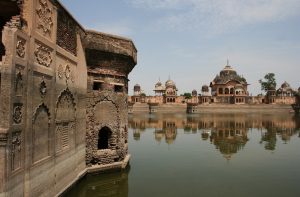 the mantra that the spiritual master has given. Have a deep attachment to those places where Kṛṣṇa has performed pastimes, such as Rādhā-kuṇḍa, Śyāma-kuṇḍa, Govardhana, Nandagrāma, Varṣāṇā, Saṇkeṭa, and the best place of all, the place of Rādhikā’s residence, Yāvaṭa. Ultimately, for rendering service to Rādhikā, one must live in Yāvaṭa. You should be attached to all of these places with deep sentiment.”
the mantra that the spiritual master has given. Have a deep attachment to those places where Kṛṣṇa has performed pastimes, such as Rādhā-kuṇḍa, Śyāma-kuṇḍa, Govardhana, Nandagrāma, Varṣāṇā, Saṇkeṭa, and the best place of all, the place of Rādhikā’s residence, Yāvaṭa. Ultimately, for rendering service to Rādhikā, one must live in Yāvaṭa. You should be attached to all of these places with deep sentiment.”
We should have niṣṭhā and āsakti for both the worship itself (bhajana) and for the object of worship (bhajanīya). Bhajana is hearing and chanting and so forth, and bhajanīya is Śrī Rādhā and Kṛṣṇa. When our ruci becomes fully mature for both of these, it will be āsakti, and then by the mercy of Bhagavān one’s heart will never deviate from Him. This is all included within “mad-bhakto – become My devotee.”
The following story illustrates how Kṛṣṇa cares for those who have really become His devotees. There was a brāhmaṇa devotee of Kṛṣṇa who had read many scriptures and many commentaries on Bhagavad-gītā and Śrīmad-Bhāgavatam. He read the Gītā every day, and while reading, many spiritual sentiments would arise within him. He wrote down his realisations and desired to publish them so that ordinary people would be able to easily understand them. In this way he was engaged in bhajana. From the beginning he never took any employment. He would only beg for one hour each day, and the rest of the time he would study the scriptures, chant the holy name and perform śravaṇam-kīrtanam.
He married, and he and his wife were very content together, living on whatever Bhagavān gave them. They had no material desires at all. They only read the Gītā and contemplated spiritual topics. In the early afternoon, when most people take their main meal of the day, he would go out begging. His wife would prepare whatever he collected, and the couple would subsist solely on that.
His wife only had one piece of clothing. One day, he took his wife’s cloth and tore from it enough pieces to cover himself to go out and beg. Before going out, he had been writing down the meaning of Gītā verses one after the other. Then this verse came:
ananyāś cintayanto māṁ
ye janāḥ paryupāsate
teṣāṁ nityābhiyuktānāṁ
yoga-kṣemaṁ vahāmy aham
Bhagavad-gītā (9.22)
He began to analyse this verse: “Ananyāś cintayanto mām: those whose minds are fully self-controlled, who have no other object of meditation besides Kṛṣṇa. Ye janāḥ paryupāsate: one who worships Kṛṣṇa in all ways, especially by the medium of hearing and chanting, becomes situated very near to Him. Teṣāṁ nityābhiyuktānām: for those who are fixed in performing bhajana like this, then its result also is for the happiness of Kṛṣṇa, not for themselves. Even if a person of bad conduct engages in this type of exclusive bhajana, then Kṛṣṇa will accept him. And if that exclusive sentiment is not there, then Kṛṣṇa will never reveal Himself. This verse is related to sādhana, not the stage of perfection. To those who have exclusively taken shelter of Kṛṣṇa, He is their protector and maintainer. Besides Him there is no other.”
This brāhmaṇa’s nature was very humble and surrendered. While studying this verse, many nice sentiments were arising inside him. Then he came to the last line of the verse. “Yoga-kṣemaṁ vahāmy aham: Kṛṣṇa is saying that for His devotees who engage in bhajana in this way, He will supply all of their requirements such as food and water, and even collect them and carry them Himself.”
The brāhmaṇa stopped and thought, “How can this be? This is not right. Why? I am now an old man, over seventy years old. Up until today Bhagavān has never directly looked after us like this. We have been engaged in exclusive bhajana, and today there is not a single mouse in our home. Why? Because there is no food in the house! We don’t even have any earthen pots to catch the rainwater. There is nothing in our home, not even any foodstuffs for today’s meal! I will go out to beg and whatever I acquire, we will take that only. Isn’t Bhagavān seeing this? Is He not inside all souls witnessing everything? Certainly He hasn’t taken care of us as He is saying in this verse. Maybe if we require something, He would inspire another person to come and help us, but He would never carry a burden for us on His own head. I cannot accept this.”
Then with a red pen the brāhmaṇa scratched this verse out, thinking, “It is not possible for Kṛṣṇa to have spoken this verse. Someone else must have inserted it.”
Then he went begging, thinking, “Kṛṣṇa will carry what we require on His own body? Perhaps He would inspire a king or some wealthy man to come and help us, but He wouldn’t carry anything on His own head. The all-knowing and all-powerful Lord? I have heard that he made the poor brāhmaṇa Sudāmā into a king, but He didn’t  physically carry any burden for him. I have never heard this.”
physically carry any burden for him. I have never heard this.”
He put it out of his mind and went on begging. Wandering and wandering, three o’clock passed and he still hadn’t collected a single thing. For instance one man said to him, “Bābā, I am sorry, but our house is impure. For three days we cannot give anything because one of our family members has just died.”
Like this he didn’t get anything, so he started for home. Meanwhile, at his home, what was happening? A beautiful young boy with a dark complexion and wearing yellow cloth arrived at the gate carrying a bahaṅgī, a long stick with a bag of goods on each end, on his shoulders. The bag on one end contained rice, dahl, ghee and 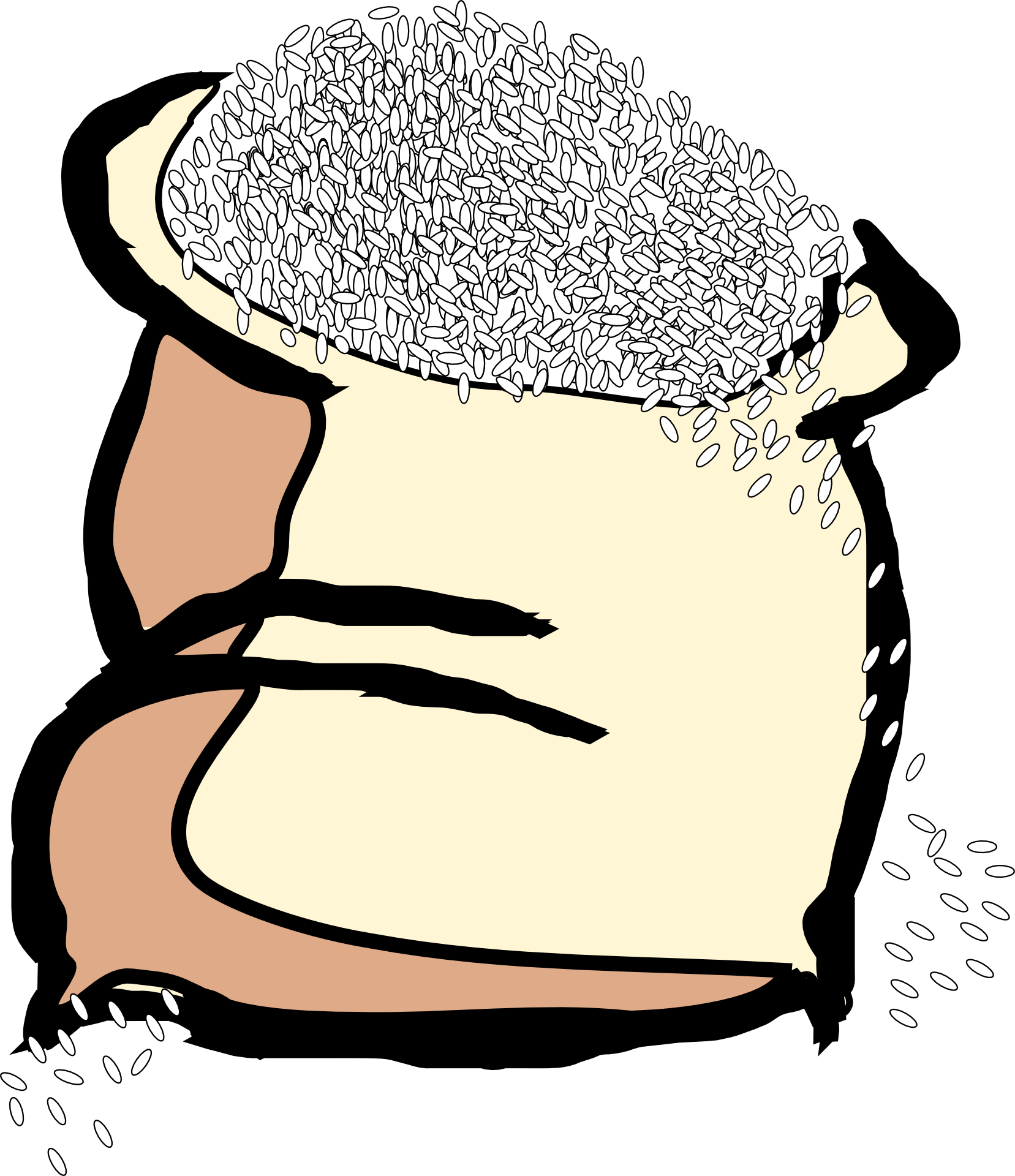 spices, and the bag at the other end contained sugar, vegetables and different things. He did not appear strong enough to carry it. He was young, perhaps only fourteen years old, and His limbs were very delicate. He was perspiring, and arriving at the gate, He called out, “Guru-ānījī (wife of the spiritual master), please open the door!”
spices, and the bag at the other end contained sugar, vegetables and different things. He did not appear strong enough to carry it. He was young, perhaps only fourteen years old, and His limbs were very delicate. He was perspiring, and arriving at the gate, He called out, “Guru-ānījī (wife of the spiritual master), please open the door!”
The brāhmaṇa’s wife replied, “What? My husband has no disciples.”
The boy replied, “Yes, yes, it is possible.”
She said, “Then who?”
“I who am speaking, I am a disciple of your husband.”
She thought, “What is this? Where has He come from?” She was unable to open the door because she didn’t even have enough clothing to properly cover herself. But Kṛṣṇa understood everything, so He handed His own shawl through the door for her to wear. He said, “Mother, Gurujī has sent Me. We have obtained all of these things today. He grabbed Me and sent Me here, saying that he will be coming soon. I asked him to please wait a minute so I could get a drink of water, but he said, ‘No, You can drink water and all of that later. Go immediately to my home.’ Seeing that I am such a young boy, still he loaded all of this on Me and sent Me here.”
Hearing all of this the brāhmaṇa’s wife began to weep, and thought, “Such a tender young boy, and He is perspiring as well! Doesn’t this brāhmaṇa have any mercy? He himself will come empty-handed, and he has loaded everything on this poor boy? He has no mercy.”
Showing her His back, the boy said, “Mother, he has also scratched Me with his nails.”
“Oh! It looks like it will bleed!” She took Him on her lap and said, “My son, when he comes, I will give him a good talking to! He poses as a big, self-controlled devotee, but he cannot even show mercy to a child! My dear son, please come inside.” She brought Him inside and said, “Sit here and I will prepare something. You will not leave here without being fed.”
She went to the kitchen and began to prepare the rice, dahl and vegetables that He had brought. Then there was 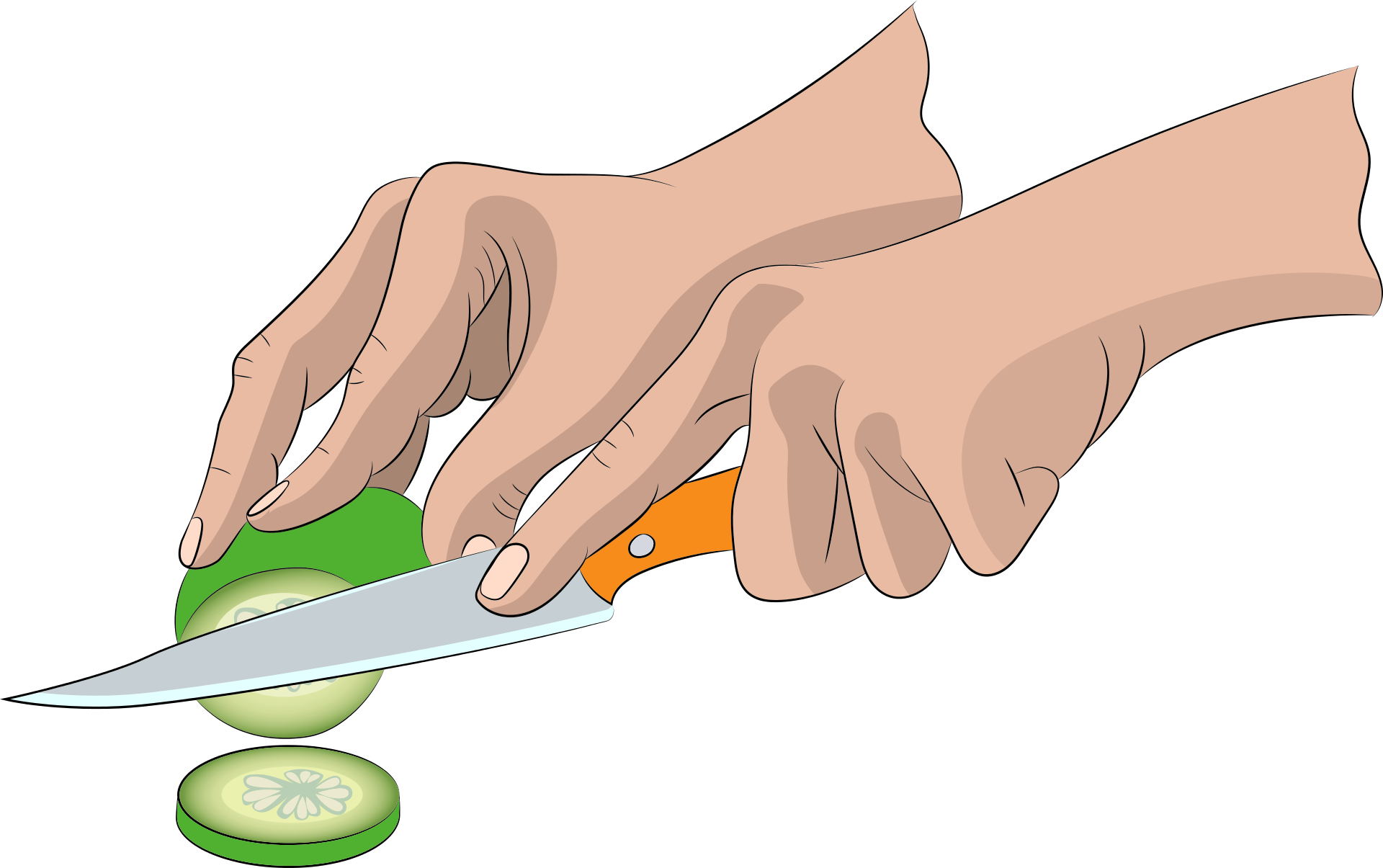 a knock at the door; the brāhmaṇa had arrived. “Open the door!” he said.
a knock at the door; the brāhmaṇa had arrived. “Open the door!” he said.
Very annoyed, the brahmaṇa’s wife went to the door and said,
“Have you brought anything? You have come empty-handed?
You loaded everything on that poor boy and then scratched Him with your nails? Don’t you have even a little mercy?”
The brāhmaṇa replied, “What? What are you talking about?”
“You know very well – that boy you sent here loaded up with everything you collected.”
“Who? I don’t know anything of all this!”
“You loaded it all on that poor child and you have brought nothing yourself !”
“Where is he then?”
“Come inside and see!”
They went inside the house, but the boy was nowhere to be seen. They searched the entire house, and all they found was a thread of yellow cloth where He had been sitting. After searching and not finding Him, the brāhmaṇa took his Gītā in his hands and opened it. Discovering that the red ink with which he crossed out the verse was no longer there, he began weeping bitterly, and said, “Today, for us, see how Bhagavān has carried our burden! This is our evidence. My doubt is now dispelled.”
This is bhakti, and an example of the sādhana that produces bhakti. Arjuna said, “My Lord, to do this, here on this battlefield, will be very difficult. I could not do man-manā bhava, and I also cannot do mad-bhakto. Please tell me a method that is simple, straight and easy.”
Next the Lord will explain “mad-yājī – worship Me.”
Image/Art made possible by Pixabay.com & Krishnapath.org








